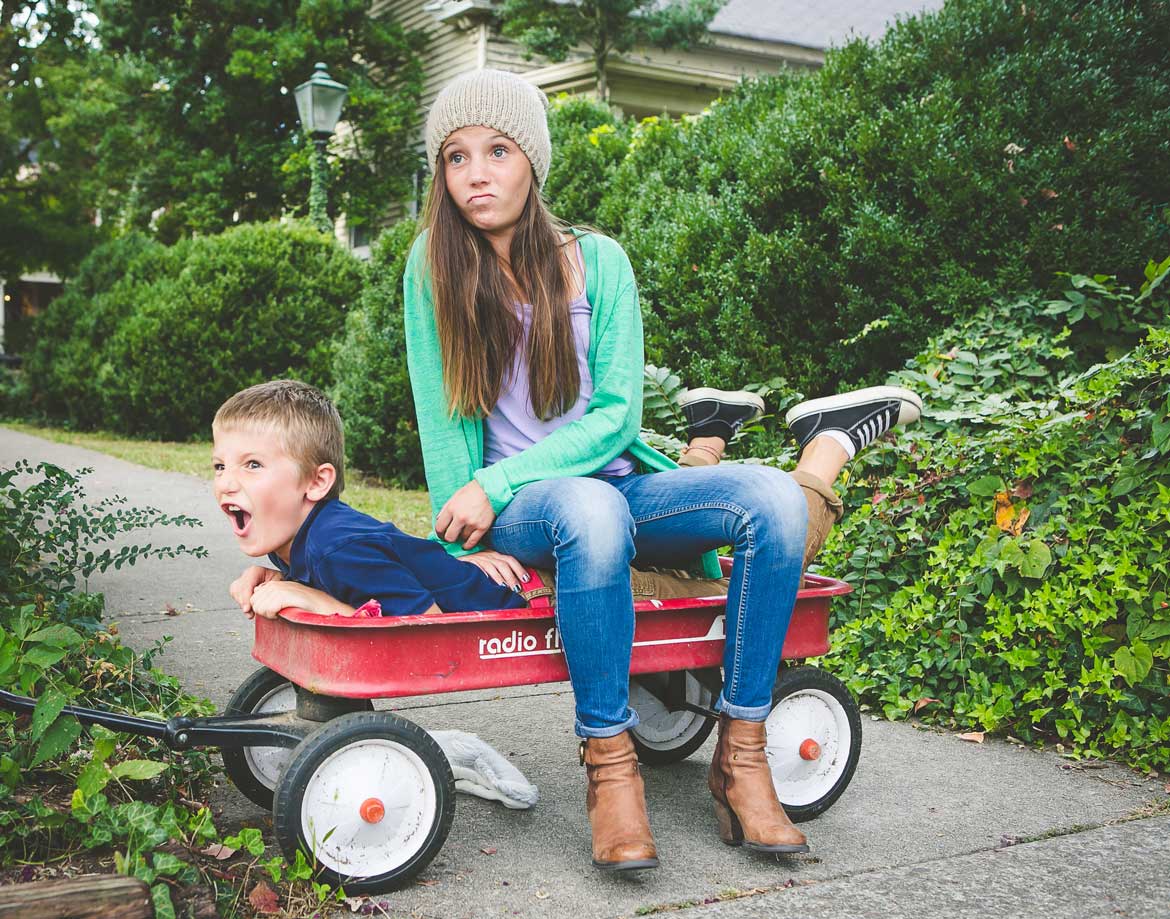3 Things You Need To Tell Your Babysitter

“I think I did…”
[23 seconds go by]
“Did I?”
“I must have…”
“Or not. Uggh!!!”
Tell me I’m not the only crazy one. Tell me you do this, too. You leave the house, get to your car, second guess the door-locking, and now there’s a pretty intense dialogue in your head. Do you keep driving or turn back and make sure you locked the door?
The same thing can happen when you leave the kids with a sitter. Here are 3 things you should tell your babysitter before you leave the house. We need some kind of a system in place to foolproof our forgetfulness, empower the sitter, and protect your kids. Research shows that common sense reactions are not so common amongst babysitters (even if they’ve been through babysitter training). Yikes!
1. Safety Information
This one is pretty obvious, but it’s worth mentioning. You might even already have this printed out and laminated. (Do people still laminate?) Anyway, just never assume the sitter knows your address and have it handy for them (which is especially useful for a cell phone initiated 911 call where the dispatcher might ask for the address). Here are some things to include: Parent Names, Cell Phone Number, Where you’ll be, Address of the House/Nearest Cross Street, and Emergency Contacts other than a Parent (at least 2).
2. Child’s Profile/Bio
Of course, you’re going to remember to mention the big things like the broken arm or peanut allergy, but what about the little things that are normal to you now…like breath-holding or the tendency to hide in the dryer. There’s no way our brains can remember to pass on all those details every single time we leave the house. So, what do we do? Write a bio. Create a profile. Include the obvious things like name, age, allergies, medical conditions and other things like behavior issues, bedtime routines, screen/music restrictions, etc. Of course, you don’t have to write a new bio every time a sitter comes over, just update it every 6 months or so. Easy peasy.
3. Set Parameters
Shockingly or not, most sitters are not confident to respond in an emergency. A research study found that there was no real difference in response between sitters that were trained vs. sitters that were untrained. This speaks to the need to update babysitter training programs. But there’s a simple thing you can do to help. Define what circumstances would warrant a 911 call vs. a call to you. It seems obvious, but concrete information can alleviate the sitter’s stress. I can tell you as a nurse, when a child comes out of open heart surgery, the doctors don’t sit at the bedside indefinitely. Instead, they set parameters: “Call me if the blood pressure is less than 100/60,” for example. Every parent will have a different “Call me if…” level. Have it written and verify it with your sitter.
I’m all for simplifying life so that I have to think less. If you’re like me, you’ve got a lot going on. Let’s free our minds. Now, if you’ll excuse me, I have to drive back home to make sure I locked the door!


 Hi, I'm Grace. I help parents feel more confident about CPR and provide research-based resources for healthy families. Read more about me and Precious Hearts
Hi, I'm Grace. I help parents feel more confident about CPR and provide research-based resources for healthy families. Read more about me and Precious Hearts